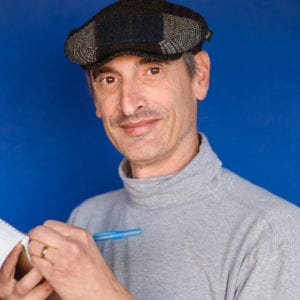Human Resources
Lee Chottiner
Anita Zusman Eddy was not surprised by an Oct. 8 incident when a Texas school district official, explaining to teachers what a new law governing race-related subjects means to them, mentioned that they may have to offer books with an “opposing” view of the Holocaust.
The executive director of the Jewish Federation of Greater Dallas’ Jewish Community Relations Council, Eddy expected something like this to happen when the Texas Legislature passed the law, which she described as “vague,” requiring the teaching of opposing viewpoints on controversial subjects.
“Our worst fears were realized,” she said. “Our concern was that a historically factual event like the Holocaust, and antisemitism, would be treated as controversial subjects.”
The bill in question is House Bill 3979, which became state law in September. It requires teachers to present multiple perspectives when discussing “widely debated and currently controversial” issues.
The law is causing confusion among Texas educators, who are trying to understand what it means for the way they teach, hence the Oct. 8 incident in the Carroll Independent School District (CISD).
It is one of several similar bills making their ways through state houses around the country.
While opponents to 3979 claim it is a veiled effort to stifle the teaching of issues important to Black, LGBTQ and other minorities, the Holocaust appears to be an exception to the law.
Soon after NBC broke the news about what happened in the CISD, in suburban Ft. Worth, a state senator sponsoring an update to the law and the Texas State Teachers Association said the law does not require teaching Holocaust denial. The CISD superintendent apologized for his administrator’s remark and met with Jewish leaders. He stated that there was no opposing view to the Holocaust.
All of which was consistent with the longtime support the Jewish community has enjoyed from Texas state lawmakers, Eddy said. “We as a Jewish community are lucky that way. They are not as supportive of other minority groups.”
This incident is not the first time CISD, where Eddy lives and her daughter attends the eighth grade, has made headlines for racially charged incidents. In 2019, videos of high schoolers using racial slurs went viral, prompting the school board to form a committee to consider ways to promote diversity.
The result was the proposed Cultural Competence Action Plan (CCAP), a plan designed to promote diversity and inclusion, and reduce bullying.
But opponents called it overreach by the district, claiming that it would shame kids because of their skin color, that the existing code of conduct is sufficient, and that CCAP is being promulgated by supporters of critical race theory.
Those same opponents have organized rapidly – and effectively – to fight CCAP. They formed a political action committee, raised a substantial war chest and are running their own candidate for the school board.
Meanwhile, the climate in CISD has turned “toxic,” Eddy said.
“Lots of accusations going back and forth between parents, between parents and school board administrators, attacks even on students,” she said.
“There may even have been – I’ll say threats – nothing that I believe is life-threatening, but horrible insults that have made people feel threatened.”
So why did a regrettable Holocaust reference stir mea culpas while a racial diversity proposal spur hostility?
Hard to say, but the spread of laws like 3979, will likely have a chilling effect on what young people may learn in schools about their country and its people.
That chill is already happening in the CISD, where teachers have been given scoring sheets to evaluate their classroom books for compliance with the law, the Texas Tribune reported. Further, a CISD teacher was recently reprimanded for having an anti-racism book in her classroom after one parent complained.
Eddy called such developments “very dangerous for the Jewish community, very dangerous for other minority communities, and ultimately extremely harmful and dangerous to our society as a whole, and to democracy.”
(Lee Chottiner is the editor of the Jewish Louisville Community.)



